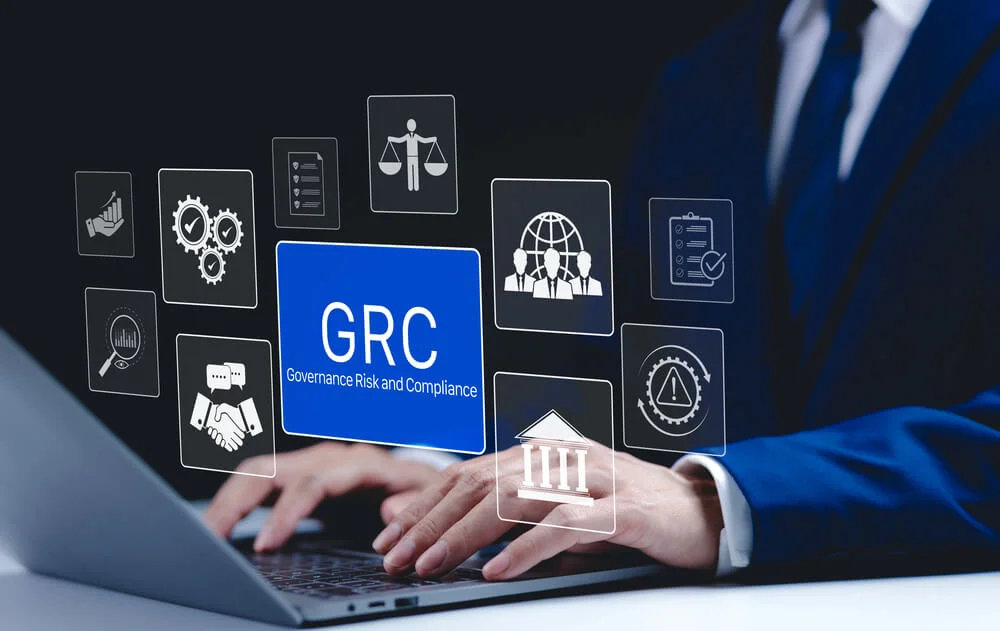The Vital Role of Privacy and Code of Conduct in a Business
Impropriety, unauthorized data access and poor judgment on account of your employees can ruin your reputation and destroy the trust of your consumers. The threats to sensitive information and consumer trust make privacy and code of conduct extremely important. Company-wide conduct policies establish a framework for both employee and customer interactions that protect your brand.

What Is Privacy and Code of Conduct?
Your company needs clearly defined boundaries and expectations for the behavior of employees, across all employment levels. Stakeholders often use privacy and a code of conduct to protect the best interests of the company, as these are published policies addressing interactions and behaviors either acceptable or not to the company’s values.
Each company creates its own set of rules and will use different ways to train employees on them. There are typically procedures for ensuring all applicable individuals are following the rules, often with consequences for failing to honor the policies.
The Purpose of a Code of Conduct
While companies want to create a great experience for their consumers, they also have an obligation to their employees, vendor partners and other stakeholders. A code of conduct removes any confusion about what behaviors contribute to a safe and relaxed working environment, helping remove the potential for negative conflict, threats of violence or harassment or difficult and uncomfortable interactions.
Companies will typically establish a code of conduct according to the brand’s values and publish the information in an employee handbook. There are often guidelines for the protection and safety of the consumer or client as well as employees. During the onboarding process, employees read these policies and acknowledge their responsibility to follow them. This puts everyone on the same page with regard to privacy and conduct.
What Are the Benefits of Privacy and Code of Conduct in Business?
It doesn’t matter if you’re a small or mid-sized business. You strengthen your brand, create a safer working environment and safeguard consumer trust with privacy and code of conduct policies in place.
Advance Company Values
Employers primarily use a code of conduct and privacy policies to guide interactions between employees, but they’re also useful in recruiting and customer retention efforts. Job candidates can better understand the values, ethics and morals driving the company. This lets them know when they are a good fit for the organization. As the employees model desired behaviors and avoid those frowned upon by company policies, consumers take notice and learn the company values as well.
Present a Clear Guideline for Employee Behavior
A comfortable, safe working environment for your employees is vital for a number of reasons:
- Productivity
- Company culture
- Morale
- Legal liability
Employees need to act according to the expectations of the stakeholders, which is laid out in the code of conduct. Unfortunately, not every company effectively institutes enough guidelines. One-third of corporations say their code of conduct is ineffective, either because of the content it is missing or the individuals it fails to include. Contractors, vendor partners and others who do business on your behalf or with you should all operate under these policies as well.
Establish a Measurement of Performance
Privacy and code of conduct lay the foundation for an employee’s performance record. An employee who is aware of the policies and actively honors and follows them protects the company’s interests and aligns with the company’s values. These are the individuals you would want to promote or invest in.
What Should Be in a Code of Conduct?
A code of conduct is specific to the needs of a company, but there are several common areas to include regardless of what industry you are in. Privacy guidelines help prevent data breaches, where sensitive information from consumers, the organization or employees gets into the wrong hands. These are key elements or types of conduct to address.
Integrity
Be clear about the company’s commitment to honor the values and mission of the company in all actions and policies. Whether the interactions are between employees or with investors, consumers or suppliers, all must remain true to the company’s value system, even those aren’t under public scrutiny.
Transparency
Your brand’s reputation depends on your authenticity and transparency. This means compliance with the code of conduct should be enforced and rewarded. Those who don’t follow the code should have consequences appropriate to the situation. Being consistent with enforcing and following the rules shows employees and consumers that you are serious about the company’s values.
Confidentiality
Privacy and code of conduct policies should prioritize confidentiality. Your company likely holds a lot of data and sensitive information, whether it’s the financial records of clients, the address and demographics of your employees, or proprietary information for the company. You must have standards in place to make sure all data remains confidential.
A big part of confidentiality includes protection against data breaches and safeguarding an individual’s privacy rights. There are several governing bodies with data protection regulations in place, such HIPAA, that have specific requirements for your business to comply with. These include the collection, processing and storage of personal data, and compliance with these involves monitoring how your employees have access to the data. Failure in these areas can lead to serious legal consequences.
Professionalism
A number of behaviors may qualify as unprofessional conduct, so it is important to give employees a clear picture of prohibited actions or activities. Areas of professionalism to go over include:
- Communication
- Internet usage
- Dress code
Professionalism should be a focus of every interaction, as the way employees treat consumers, suppliers or others reflects on the brand.
Violations and Reporting Misconduct
It’s important to enforce privacy and code of conduct expectations in the workplace. Part of your code should outline what happens when violations occur as well as a process for reporting violations.
Free Security Assessment Today
Support Privacy and Code of Conduct in Your Business
You can improve your compliance with privacy and code of conduct by working with Compyl. As a platform, our service helps streamline your workflow without compromising on data security and employee access. Request a demo to find out more about your options.
FAQ's
Companies should regularly review and update their privacy and code of conduct policies, ideally annually or in response to significant legal changes, technological advancements, or shifts in company operations or culture. This ensures the policies remain relevant, effective, and in compliance with current laws and best practices.
Implementing privacy and code of conduct policies can be challenging due to potential resistance from employees, the complexity of legal requirements, and the need for comprehensive training. Companies can overcome these challenges by fostering a culture of transparency and accountability, providing clear, accessible training, and involving employees in the development process to ensure buy-in and understanding.
Small businesses can effectively implement and manage privacy and code of conduct policies by leveraging resources such as templates and guidelines from reputable legal and industry-specific organizations. Additionally, consulting with legal experts or using compliance software tailored for small businesses can help streamline the process and ensure policies are comprehensive and compliant with relevant laws and standards.




